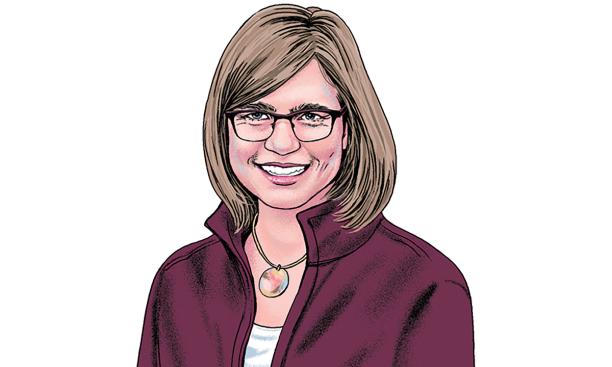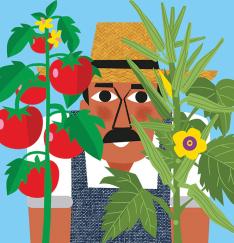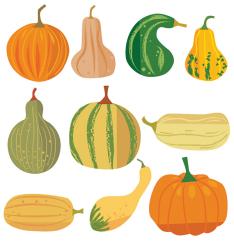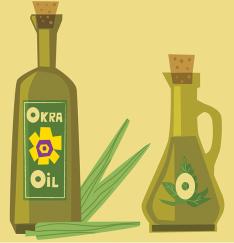
Tessa Desmond’s early memories around food include hearing stories about the Minnesota farm her grandparents owned through the 1960s, as well as the stigma her mother faced using food stamps at the grocery store. “Those sets of experiences were just seeds in my understanding of the really varied food landscape in the United States,” Desmond says.
While in graduate school at the University of Wisconsin pursuing a Ph.D. in literary studies, this understanding blossomed. Desmond served as a community farmer in the diverse neighborhood of South Madison. The experience led her to create a course on food justice and the cultural impact of food at Harvard. She never looked back.
Desmond moved from literature to food studies. Her research focuses on culturally significant seeds, histories of agrarian thought, agro-biodiversity, sustainable and regenerative agriculture, and food sovereignty — with an emphasis on community partnership. She directs The Seed Farm at Princeton, which brings together students, scholars, and community partners to grow rare and culturally meaningful crops at the Stony Ford Research Station (part of the Department of Ecology and Evolutionary Biology). She co-leads the Princeton Food Project, a collective of scholars who focus on food from interdisciplinary perspectives.
Quick Facts
Title
Research specialist in SPIA
Time at Princeton
7 years
Recent Class
Saving Seeds
Desmond’s research
A Sampling
Planting Stories
In 2020, when the Maryland-based Ujamaa Cooperative Farming Alliance (UCFA) was first forming, Desmond was struck by stories that members frequently shared about their generations-old family gardens and the important plants they cultivated. “They recalled the medicines, herbs, and foods that came from the garden to help provide for the family in everything from healing to holidays,” she says. “Those conversations were an attempt to reclaim the knowledge that previous generations had about medicines and foods that were culturally meaningful.” She helped the UCFA partner with Princeton and Spelman College to establish the Heirloom Gardens Oral History Project, which documents these efforts to preserve Black and Indigenous seeds and foodways across the southeastern U.S. and Appalachia.
A Significant Squash
In its traditional form, the Nanticoke tribe’s hearty Maycock squash was a landrace varietal, meaning it was cultivated over generations to adapt to its environment, resulting in great diversity in shape and color. “They don’t all look the same. And they’re not supposed to: It’s that biodiversity that makes this squash really resilient,” Desmond says. However, modern plant-breeding standards emphasize uniformity, and small-scale growing projects ended up promoting more homogeneity in the squash. She is working with the Experimental Farm Network and Native Roots Farm Foundation to cross-pollinate modern versions of the squash “to move the variety back to this really diverse, resilient landrace that was selected by Nanticoke elders over generations and generations to be.”
Worth the Squeeze
Popular crops like corn, cotton, and soy require extensive equipment, resources, and money to grow. A plant like okra, meanwhile, is low input, climate friendly, and potentially high value — every part of the plant is either edible or otherwise usable. Chris Smith, founder of the Utopian Seed Project and a James Beard Award-winning author, found that okra oil, used as an artisanal food oil, would provide the greatest economic incentive for farmers to consider growing the plant, as long as the oil content of the seeds was 30% or higher. Through The Seed Farm and Conway Lab, Desmond collaborated with Smith to cultivate just such a varietal. The team is leveraging University resources, like nuclear magnetic resonance technology, to measure and analyze the oil content in the okra line that Smith has developed.



